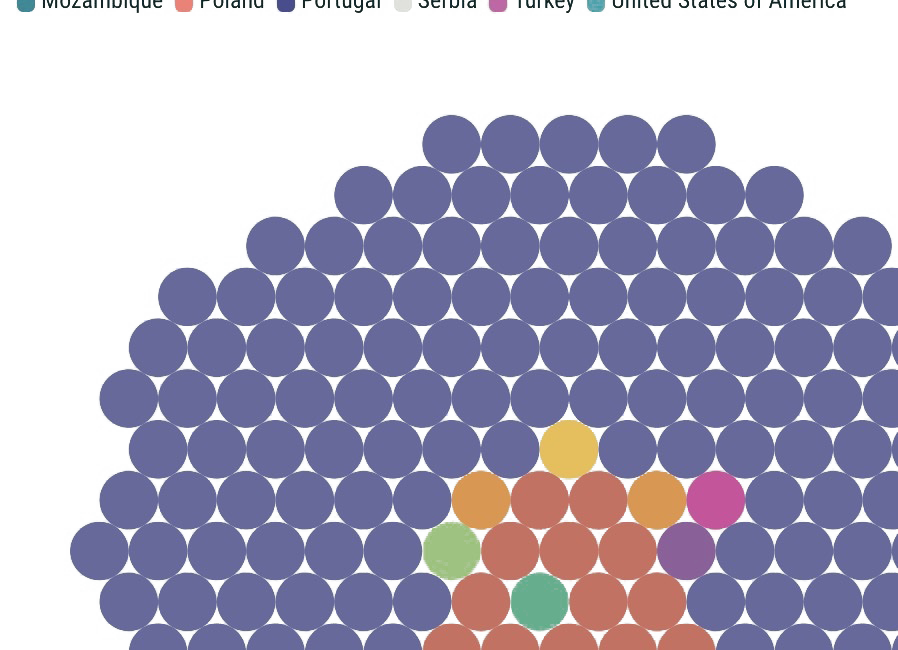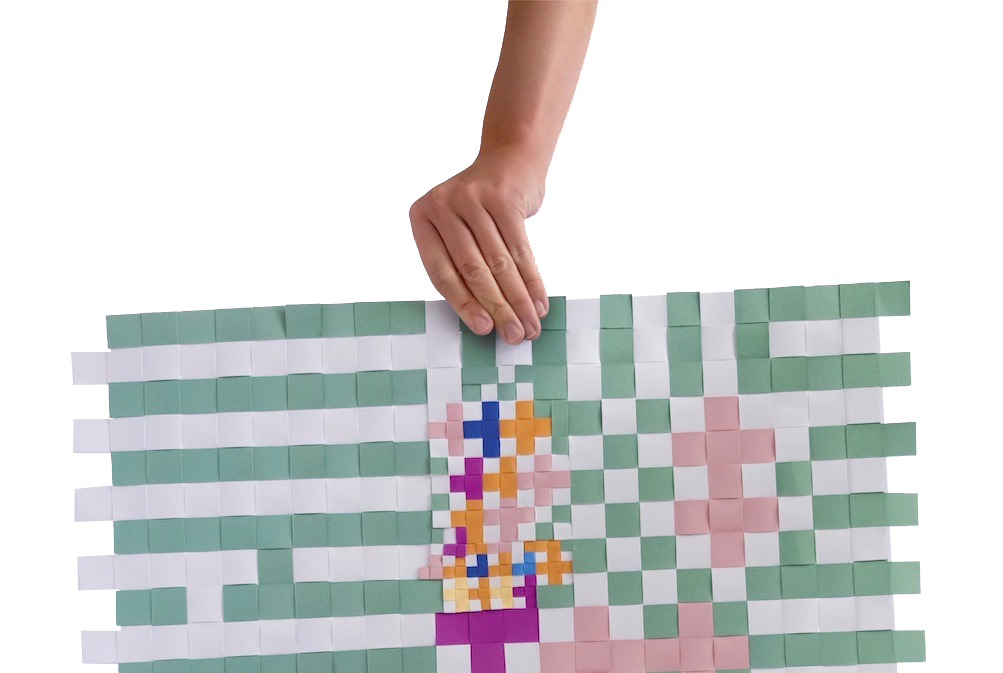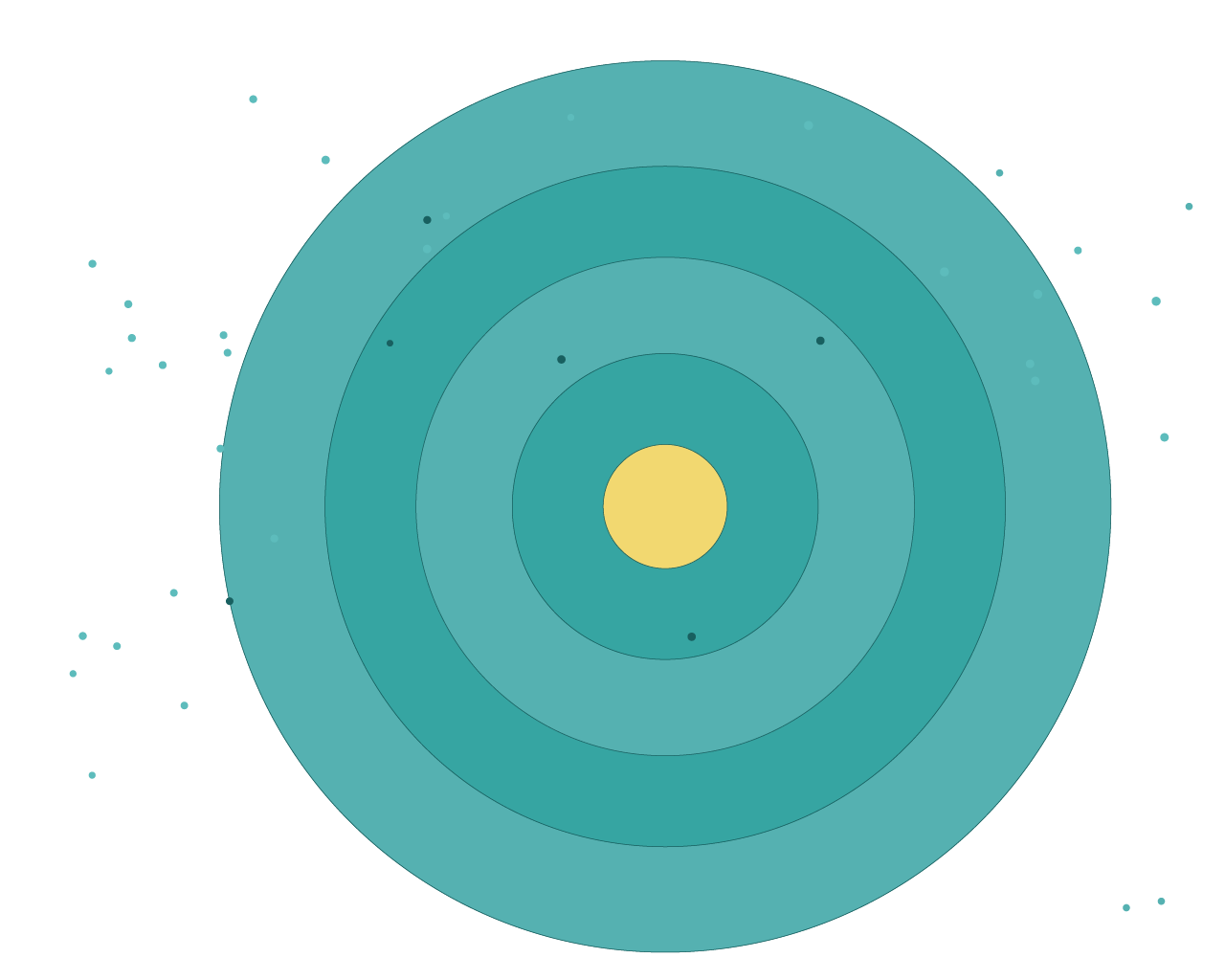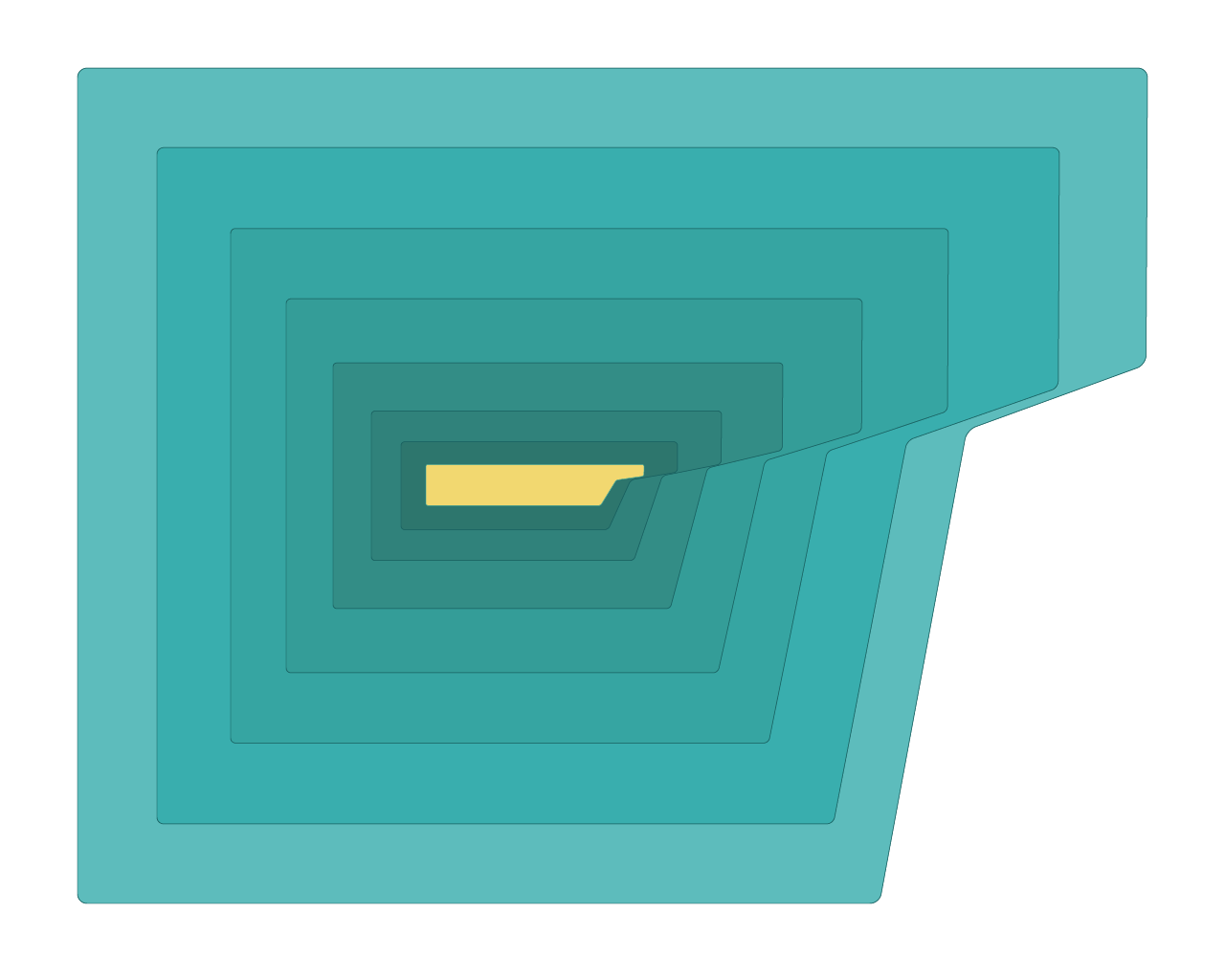The project uses paper to represent the distribution of design schools throughout the territory. The proportion of the crosses varies according to the number of graduates within the region. In the cosmopolitan areas, such as Lisbon and Porto, the crosses become smaller, not due to the number of graduates, but because of the density and variety of schools.
This poster was developed based on the geographical location and number of design graduates in Portugal. The visualisation was commissioned by the team of the DesignOBS project (Towards a Design Observatory in Portugal, www.designobs.pt), following a distributed and participatory approach.






